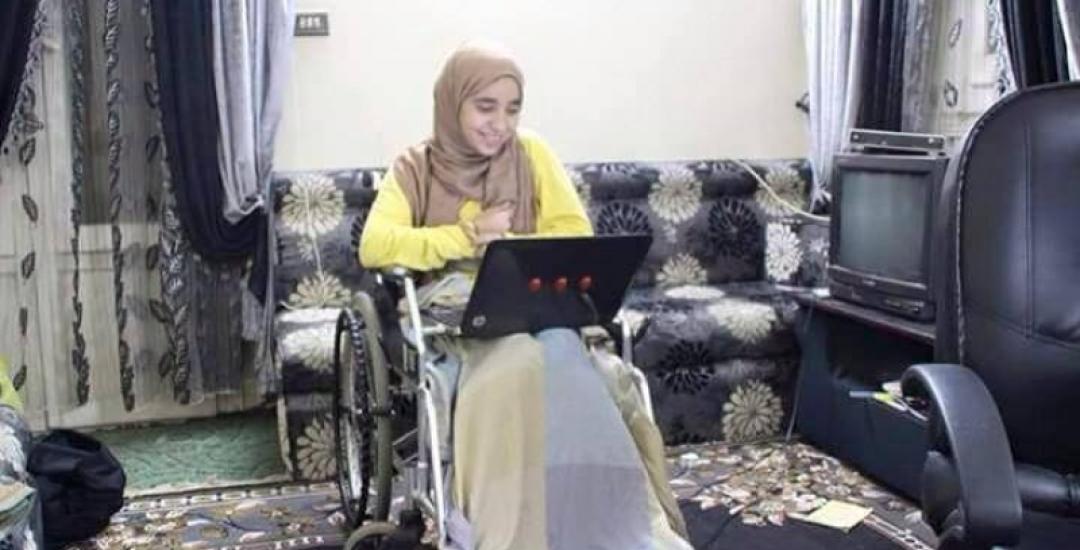
On 22 July 2015, Alkarama sent an urgent appeal to the United Nations Working Group on Arbitrary Detention (WGAD) regarding the continuous detention of Esraa Mahfouz Mohamed El Taweel, a 23-year-old student who has been detained arbitrarily since her arrest on 1 June 2015. Esraa is at high risk of not walking again if she is not able to continue the treatment that she was prescribed after governmental forces shot her in the leg during the peaceful protests that marked the third anniversary of the 2011 revolution on 25 January 2014, as the bullet affected the nerves controlling her legs.
Esraa's disappearance and incommunicado detention
On 1 June 2015, still recovering from her gunshot wound, student at the University of Cairo and aspiring photographer, Esraa and two friends of hers went for dinner in a restaurant near the 6 October Bridge in Cairo.
Shortly after leaving the restaurant, several members of the Security Forces apprehended the three young students, blindfolded them and forced them into a minivan. Esraa was then brought to Lazoghly State Security facility in Cairo, where she was blindfolded again and secretly detained in particularly harsh conditions for 15 days. She would later report that, still not knowing the reasons for her arrest and detention, she had spent her first two weeks in detention surrounded by the echoes of detainees subjected to torture.
Steps taken by Esraa's family to find her
Seeing that their daughter did not come back and worried about her whereabouts, Esraa's family started searching for her, suspecting that she could have been abducted by the authorities. Together with Esraa's friends, they inquired about her in various police stations of Cairo, where they received insults but no information on their relative's fate. Her sisters also spread the message of her disappearance on Facebook and called out to the authorities in the media, also to no avail. Eventually, news regarding Esraa emerged after a family friend visited a relative in Al Qanater's women prison and learnt that she was detained there.
Her mother and sister immediately went to the prison in order to visit her but they were refused entrance by the prison personnel. By coincidence, as they were leaving the premises of the prison, they saw Esraa coming out escorted by guards on her way to a hearing before the State prosecutor – hearing that was eventually cancelled. Looking pale and walking with difficulty, she did not say a single word to her family as she had been threatened by the guards not to speak to them.
Later that day, several members of the police forces raided Esraa's family flat and asked for her sister, Duaa who was absent. The officers waited for her return and asked her to sign a paper stating that she had to go to the Security Forces facility to be questioned over her sister's activities. After she signed the paper, they confiscated five computers, including Esraa's. As for Duaa, she went to the Security Forces building in Nasr City where she was interrogated for four hours before being released.
Arbitrary detention
The following morning, Esraa's mother and sister were eventually allowed to visit her. They also learned from a Ministry of Interior statement that she had been charged with "affiliation to the Muslim Brotherhood" – an accusation for which she could be jailed for life, or a minimum of 10 years – as well as "spreading false news inside and outside of Egypt" and "disturbing peace and public order". The Ministry further asserted that her arrest had been legally justified by investigations but did not mention anything about her secret detention, nor about the fact that she had not been presented to a prosecutor in due time, or been given the possibility to challenge the lawfulness of her detention, all elements which characterise the arbitrariness of her detention.
After last seeing her on 14 July 2015, Esraa's parents testified that their daughter was not involved with the Muslim Brotherhood and that her photography activities – which seem to be the basis of the other accusations brought against her and could explain why the officers confiscated her laptop – were only a hobby. "She just has a camera and likes to take photographs of her lovely friends on their happy occasions," her father told Alkarama. "She has never done any harm or any bad act. She has just been recovering from being unable to walk for more than one and a half year and was barely going out of her room," he added.
Denial of medical care
Denied medical care since her arrest and subsequently unable to continue her rehabilitation programme, Esraa could become permanently disabled if the authorities keep on renewing her detention. In fact, her trial has yet to be scheduled, which can take some time as, since the assassination of Egypt's General Prosecutor, Hisham Barakat, on 29 June 2015, even her hearings before the prosecution have kept on being postponed.
Local remedies being inefficient, Alkarama sent an urgent appeal to the United Nations Working Group on Arbitrary Detention (WGAD) to ask the Egyptian authorities to release Esraa Mahfouz Mohamed El Taweel and to drop the charges held against her. The authorities should also investigate the reports of secret detention and ill-treatment and prosecute the authors and their hierarchy. Alkarama urges the Egyptian authorities to end the arbitrary detention of the thousands of individuals who have been arrested since July 2013 under politically-motivated charges.
For more information or an interview, please contact the media team at media@alkarama.org (Dir: +41 22 734 1008)
